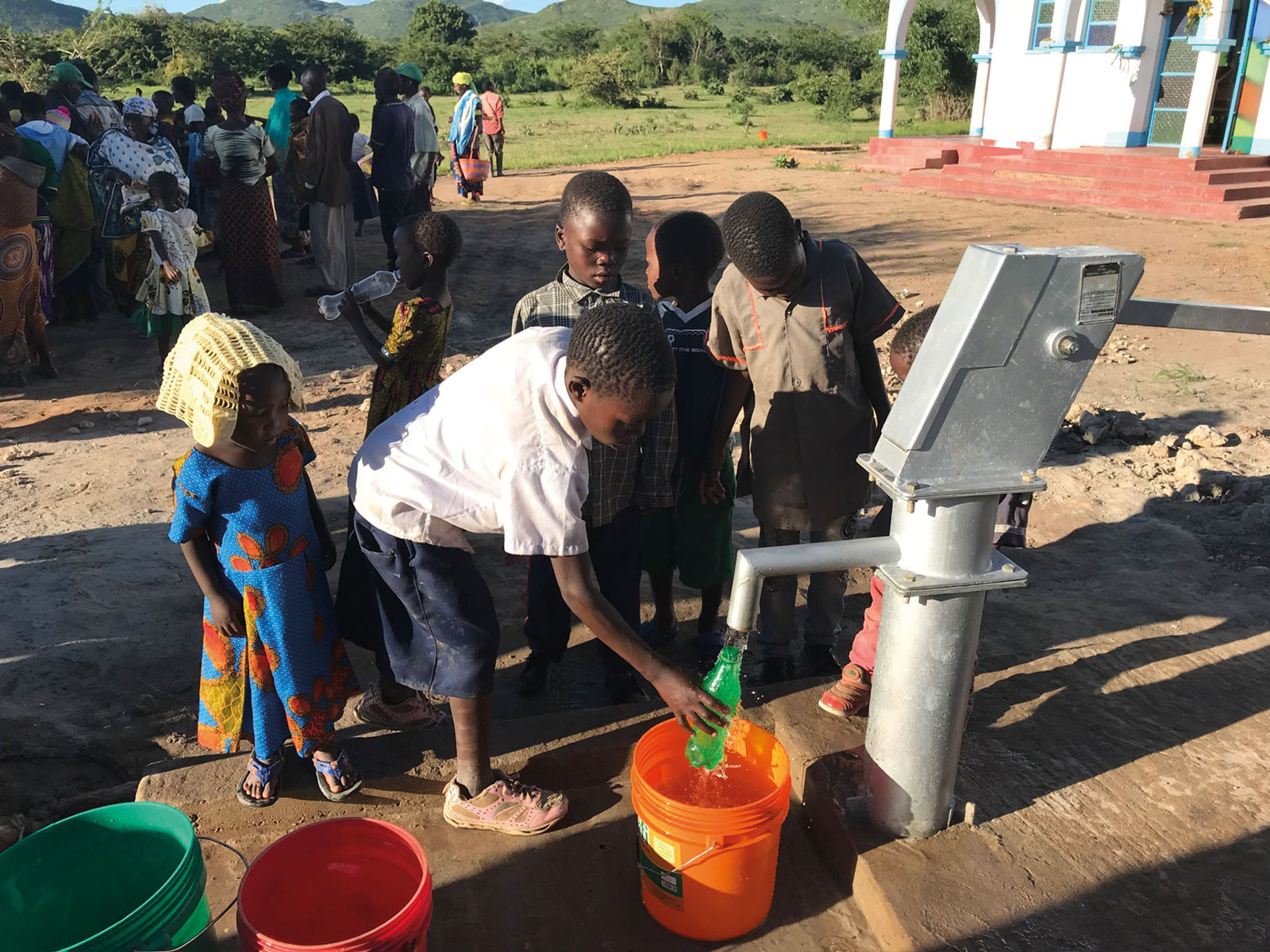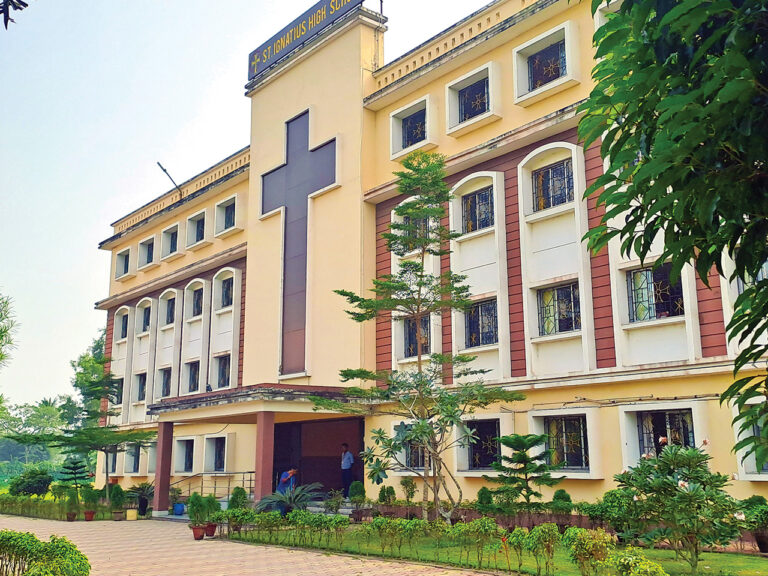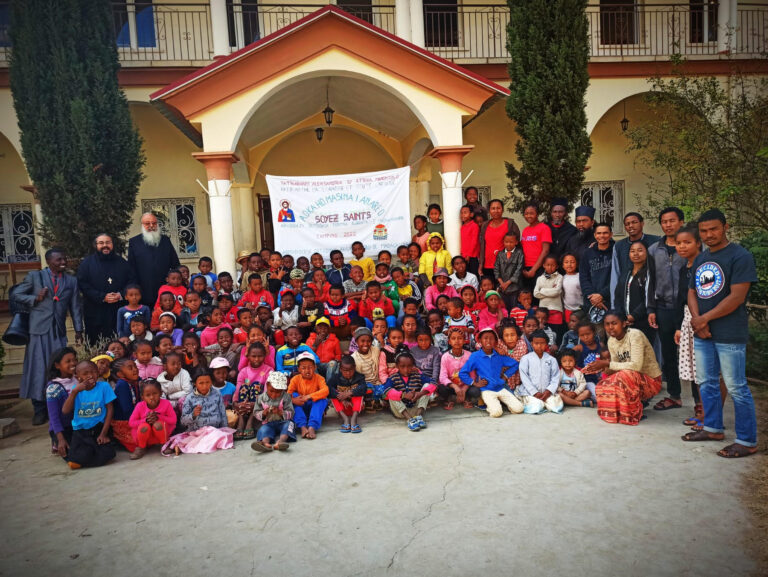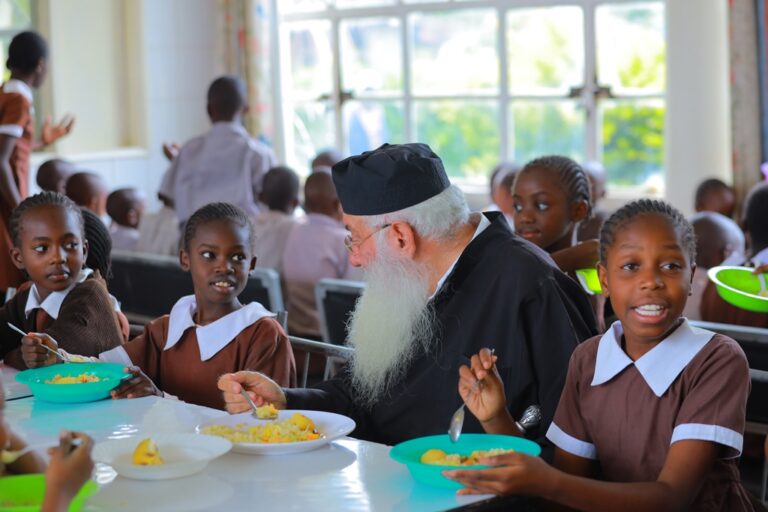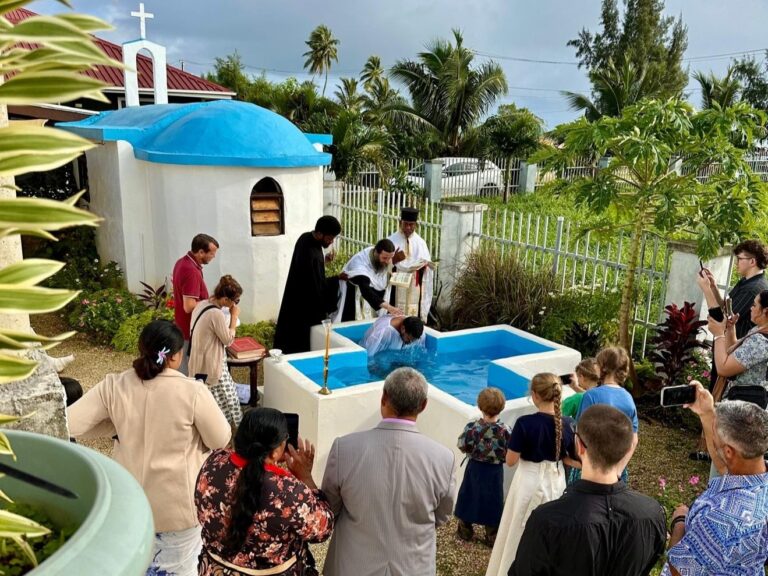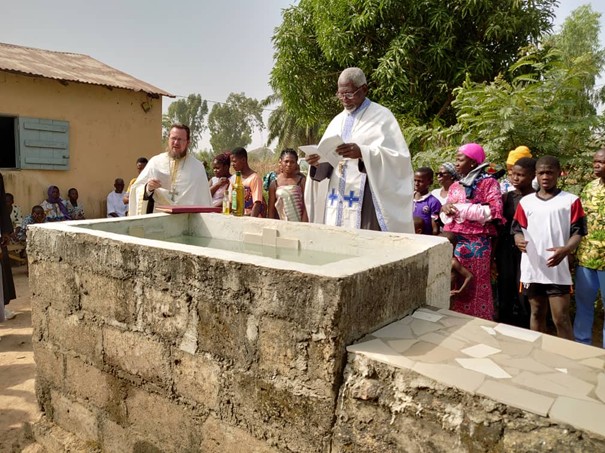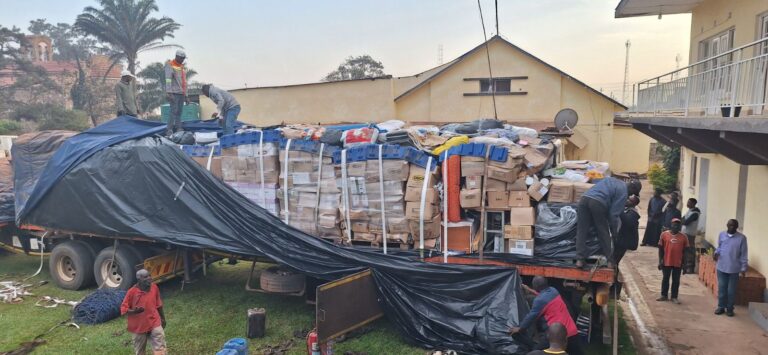Saving lives in Tanzania
And on top of everything, we had the outbreak of the pandemic…
Struggling with scorching heat, which at that moment was changing into a strong storm, she unloaded under the tufted tree the sack of coal that she was carrying on her head, and found the chance to let her imagination fly to her earthen hut, where her sick child was lying on the ground with a mud brick for a headrest. She was able to see her little one, hungry, thirsty, feverish, his lips dry and his gaze weak.
Even though she wanted to continue walking, she could not do so by any means as the storm was blocking her way. The only thing that the heavy rainstorm could not possibly stop was her mind, which anxiously ran on the muddy dirt roads and struggling up the hill, reached her earthen hut, set aside the sack that she used as a door, and then, tenderly stood above her little one to listen to his troubled breath and wipe the sweat from the fever, which had been distressing him for so many days.
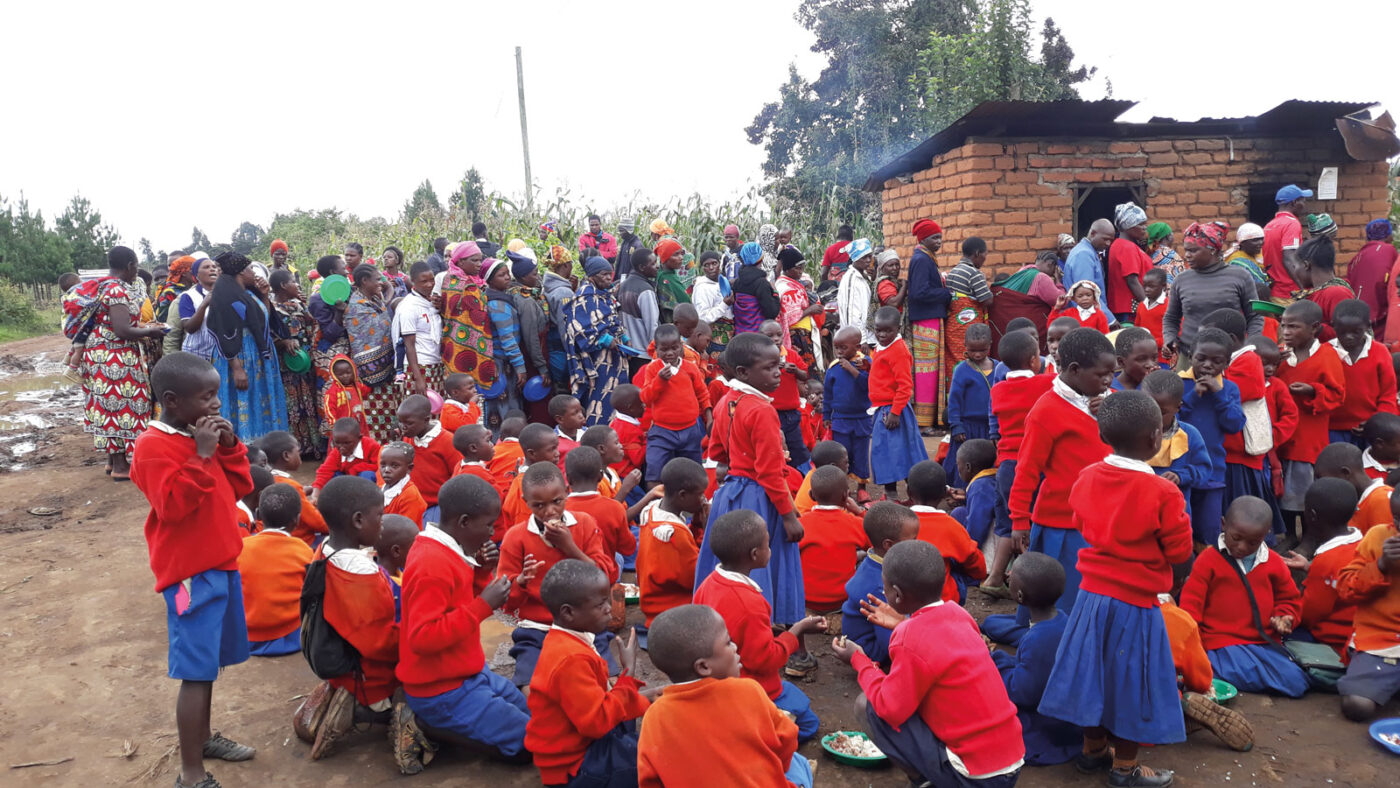
That was all her property. Her only child, her hut, the sack she used for a door, three stones on which she placed the pot to cook, two thin straw mats and two hens. The hens, terrified by the unexpected storm, nestled in the hut and nibbled on the little sick child’s feet. She recalled something from Sunday, when she went to the village church; the priest after the Holy Communion and the short sermon, read them a benediction prayer for healing from the disease which is now called “pandemic”, because like the insidious snake, it has sneaked its muzzle into every corner of the world. Her utter poverty was the reason why she lived up there in her hut for years, which, in defiance of the heavy rain and the relentless winds, was hooked on the hill, a little higher than the village, and when the weather was good, she could see the tops of the cracked ravine, which the English called Rift Valley. In the shallows of the ravine lay the great Ruaha, a safari park with the lions and the elephants, the deer and the crocodiles … How happy she was deep in her soul when she thought that down in the jungle lived free so many kinds of wild animals in their own paradise, without the need of any human presence, and when she saw her little son crawling happily and naked under the strong midday sun. O, God, how blessed people’s life would be if we all respected every single human being and living thing and lived peacefully and selflessly with love in all directions…
Hardly had the heavy rain diminished when she gathered her thoughts, loaded the sack of coal on her head and continued uphill climb. Her husband, May the soil lie light upon him, had died before the baby was born, of the disease that was called the plague of Africa. He left hurriedly, leaving her alone with a child in her womb. Thank God she found solace near the Orthodox Church, in the center of the white missionaries, next to two nuns who supported both her in her widowhood and her orphaned baby. It is in them that she had now placed her hope. There, the white missionaries had built a Clinic, a real oasis in their impoverished area, with money sent from a distant country of which she had never heard before, Greece. There, to this Clinic, crowds of poor people from all the surrounding villages ran every day and got all the medicines they needed for free. Where could these poor people find money, when they had to face on the one hand the heavy rainfall, and on the other, the relentless sun and the severe drought, which destroyed all their earnest efforts to find even the basic essentials for survival.
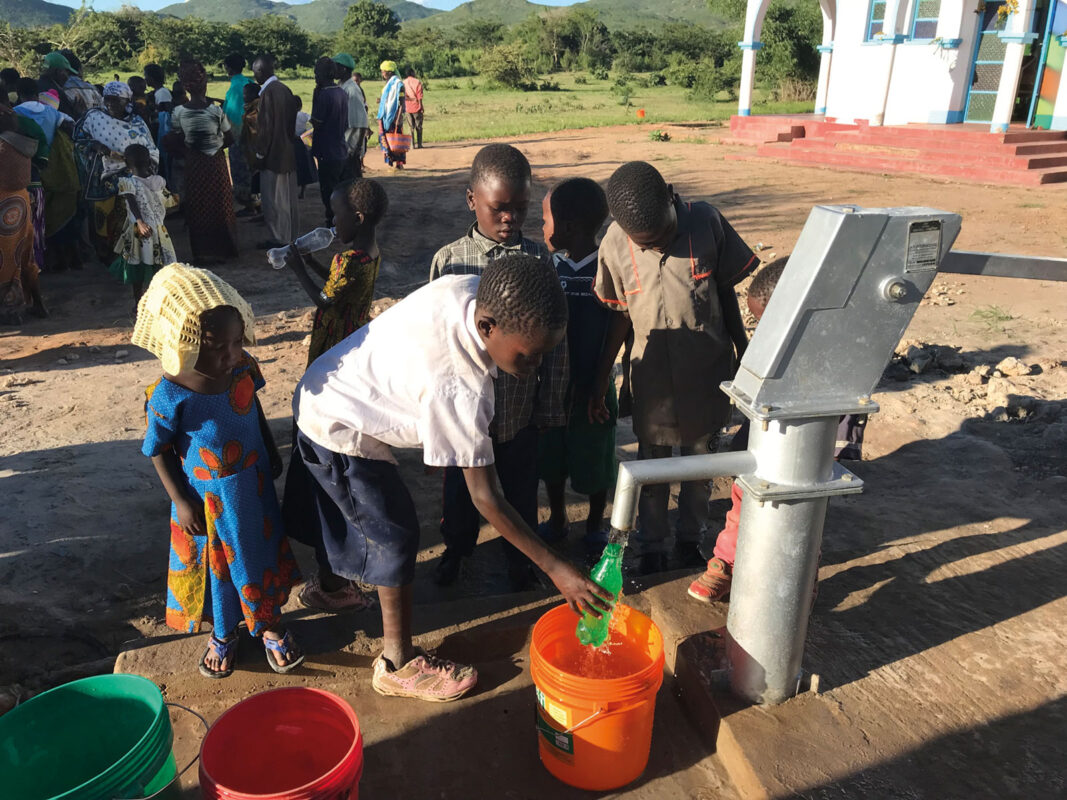
Many times in her prayer, when she lays in the hands of the loving and benevolent God all her life and the life of her precious child, in the end she whispers low, so that her little one may not hear her, “O God, do not forget the poor and needy among your children! And she is sure that now, as always, the Good God will not forget her orphan, but also no other orphaned and humble person turning to their Heavenly Father for help.
✝ Agathonikos of Arusha

